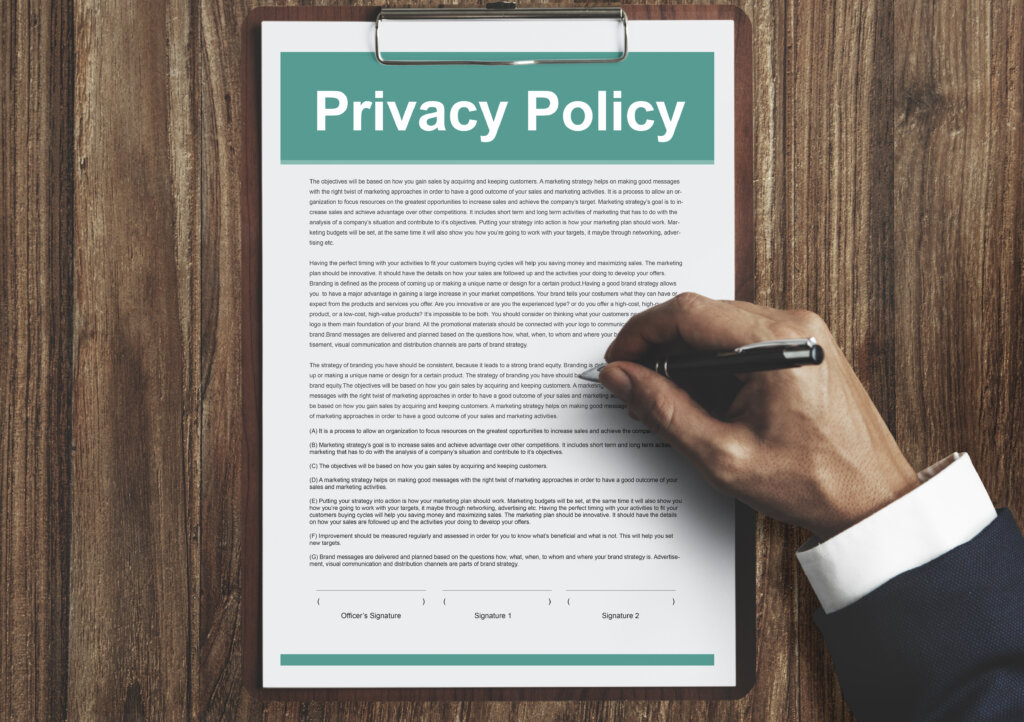
Source: Unsplash
As businesses engage in digital exchanges, it becomes imperative to understand the legal nuances that govern the interaction of buy-side vs sell-side representation.
In this article, we will explore the intricacies of protecting both the buy and sell side interests. It will also shed light on the distinctive challenges and considerations each party faces in the online business landscape.
So, whether you’re a buyer or a seller, this guide will help you navigate the realm of e-commerce business acquisition.
Legal Considerations for Buy Side Vs Side Sell Representation
With the continuous evolution and emergence of regulations, ensuring compliance is paramount to avoid potential legal issues and hefty fines.
Before understanding the legalities of buying and selling an online business, you need to know the types of online business transactions.
Understanding Online Business Transactions
Online business transactions refer to commercial activities conducted over the Internet. These transactions encompass numerous activities, including the purchase and sale of eCommerce businesses, provision of services, licensing agreements, and digital content distribution.
Before buying a business, you need to understand the different types of online transactions and the key legal principles applicable to them:
Contract Formation
Online transactions involve the formation of contracts, albeit in a digital format. Therefore, is vital to understand the elements required for a valid contract, such as offer, acceptance, and consideration. Additionally, issues like contract formation through click-wrap or browse-wrap agreements need to be considered.
Consumer Protection Laws
Online transactions often involve consumers, and various consumer protection laws come into play. These laws aim to protect consumers from unfair practices, such as false advertising, misleading information, and deceptive sales tactics. Understanding the applicable consumer protection laws helps ensure compliance and protects buyers’ rights.
Intellectual Property Rights
Online transactions frequently involve the exchange and use of intellectual property, including trademarks, copyrights, and patents. Therefore, buyers and sellers need to be aware of intellectual property laws to avoid infringement and protect their rights when conducting online transactions.
Privacy and Data Protection
Online transactions involve the collection, storage, and transmission of personal and sensitive data. Therefore, compliance with data protection and privacy laws, such as the General Data Protection Regulation (GDPR) in the European Union, is crucial to protect the privacy rights of individuals and maintain data security.

Source: FreePik
How to Protect Buy Side Firms vs Sell Side Firms’ Interests?
Protecting Buy-Side Legal Interests
Buyers in online business transactions need to take proactive steps to protect their interests to ensure a secure transaction. The following legal considerations are essential for safeguarding buy-side interests:
Legal Due Diligence and Research
Evaluate the Seller’s Reputation and Credibility
Before engaging in a transaction, buyers should research and assess the seller’s reputation. This can be done by reading reviews, checking ratings, and seeking recommendations from other buyers. Verifying the seller’s credibility minimizes the risk of dealing with fraudulent or unreliable sellers.
Verify Seller’s Legal Compliance
It is crucial to verify that the seller complies with relevant laws and regulations. This includes confirming that the seller possesses any required licenses or permits for their business operations. Buyers should also ensure that the seller adheres to consumer protection laws, product safety standards, and applicable industry regulations. Working with a professional business broker can streamline this process further.
Pricing and Payment Arrangements
Buyers should negotiate price to secure the most favorable deal. They should also clarify payment methods, terms of payment, and any associated fees or charges. Clear communication and agreement on pricing and payment details prevent misunderstandings or disputes later on.
Ensuring Buyer’s Legal Rights
Buy-side analysts must be well-versed in their legal rights.
Review and Understand the Terms of Service
Buyers should carefully read and understand the seller’s terms of service or user agreements. These documents outline the rights and responsibilities of both parties. They may include important clauses regarding dispute resolution, liability limitations, and governing law.
Resolve Disputes and Seek Remedies
In the event of a dispute or an indemnification claim, buyers should be aware of the available dispute resolution mechanisms. This may involve negotiation, mediation, or arbitration. It’s best to consult a buy-side broker to find the best remedies to resolve disputes.

Source: Unsplash
Protecting Sell-Side Interests
Sell-side firms involved in online business transactions must take proactive steps to protect their interests. By considering the following legal aspects, sell-side parties can safeguard their interests effectively.
Set Clear Terms of Service
Establish the Scope of the Transaction
Sellers should clearly define the scope of the transaction in their terms of service. This includes specifying the nature of the goods or services offered, any limitations or exclusions, and any additional terms specific to the transaction type. Defining the scope avoids misunderstandings and establishes the boundaries of the sell side responsibilities.
Set Payment Terms and Conditions
Sell-side firms should outline payment terms and conditions in their terms of service. This includes details on pricing, accepted payment methods, payment due dates, and any penalties for late payments. Clear payment terms help ensure timely and accurate payments and minimize payment-related disputes.
Address Intellectual Property Rights
Sell-side parties should include provisions in their terms of service to protect their intellectual property rights. This may involve specifying the permitted use of copyrighted materials, trademark protection, and licensing terms. Protecting intellectual property rights prevents unauthorized use or infringement by buyers or third parties.
Risk Management and Fraud Prevention
Implement Robust Security Measures
Sellers should prioritize implementing strong security measures to protect sensitive data and prevent unauthorized access. This includes utilizing secure payment gateways, encrypting data transmissions, and regularly updating security protocols. By safeguarding customer data and transaction information, sell-side parties can reduce the risk of data breaches.
Verify Customer Identities and Authenticity
Sellers should establish procedures to verify the identities of customers to prevent fraudulent transactions. This may involve implementing identity verification measures. These may include requesting identification documents or conducting additional checks for high-value transactions. Verifying customer authenticity helps mitigate the risk of fraudulent activities.
Protect Against Chargebacks and Fraud
Sell-side firms should be vigilant in monitoring and managing chargebacks and fraudulent activities. This includes implementing fraud detection mechanisms, monitoring transaction patterns for suspicious behavior, and promptly addressing and investigating any reported incidents. By taking proactive measures, sellers can reduce the financial impact of chargebacks and fraud.
Resolving Disputes and Limiting Liability
Include Dispute Resolution Mechanisms
Sell-side analysts should establish clear dispute resolution mechanisms in their terms of service. This may involve specifying negotiation, mediation, or arbitration processes to resolve disputes. By providing a structured process, sell-side agents can effectively address any disagreements.
Limit Liability through Disclaimers and Indemnification Clauses
Sell-side parties should consider including disclaimers and indemnification clauses in their terms of service. These provisions can help limit the seller’s liability in certain circumstances, such as for indirect or consequential damages. However, it is important to ensure that such clauses comply with applicable laws and are not overly broad or unfair to buyers.
Comply With Applicable Laws and Regulations
Sell-side must adhere to laws and regulations related to online business transactions. This includes complying with consumer protection laws, data privacy regulations, advertising standards, and any industry-specific regulations. Staying informed and ensuring compliance helps sellers avoid legal consequences and build trust with buyers.

Source: Unsplash
Wrapping Up
In conclusion, buying an online business involves multiple buy-side vs sell-side legal considerations to complete the transaction and acquisition process successfully. Therefore, it is important to understand and follow the laws regarding eCommerce business purchases.
If you are unfamiliar with all the legalities regarding an online business acquisition transaction, get in touch with Ecommerce Brokers. We offer expert buy-side and sell-side brokers to help protect your acquisition interests. Contact today!
Author Bio: George Moulos
Forbes 30 Under 30 2020, CEO of Ecommerce-Brokers.com
I own an online M&A firm called www.Ecommerce-Brokers.com and we have 11 years experience helping buyers and sellers acquire and sell millions of dollars worth of online businesses.
Looking To Buy? Visit our Elite Acquirers buy side broker service to learn more here
Looking To Sell? Visit our List With Us page to learn more here
Looking For Staff? Visit our Recruitment page to learn more here
